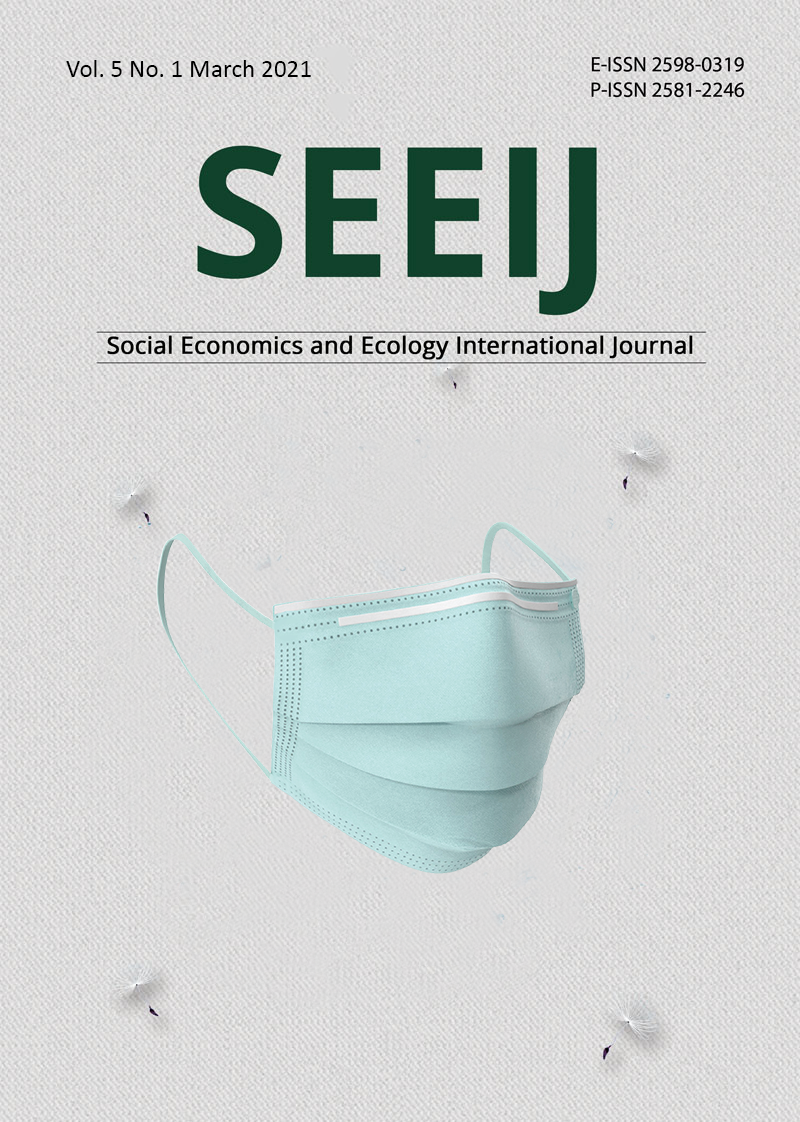Packaging Training for Traditional Emping Melinjo Crackers’ Producers in Menes Village, Pandeglang Banten
DOI:
https://doi.org/10.21512/seeij.v5i1.7367Keywords:
packaging, melinjo, bantenAbstract
Menes village in Pandeglang, Banten has long been known as the largest Emping Melinjo cracker producing area in Indonesia. The production process is carried out using a conventional process with family management, where each head of the family produces small to medium quantities of the cracker and then the middlemen or wholesalers collects them. The Emping producer’s community has some limitation in packaging knowledge and technology that makes them receive only a small profit. We provide a material regarding the good packaging concept to improve the knowledge of community. In addition, the booklet material also equipped with various explanations about marketing strategies to help the community develop products and increase sales. After receiving the booklet material, some feedbacks from participants gathered to find the effectiveness of such method of knowledge delivering.
References
Otsuka M, Sumantri , Kuspriyadi , Syaharudin. Review of the Participatory Forest Fire Prevention Programs in Jambi and West Kalimantan, Indonesia. In Communities in Flames. In International Conference on Community Involvement in Fire Management.; 2002.
Yanti L. The Potential and Development Opportunities of Processing Technology of Melinjo in Supporting of Food Security in Jambi Province. Balai Pengkajian Teknologi Pertanian Jambi. 2013.
Iqbal Z, Dewi NS, Nugraha A, Syuaib MF. DEVELOPMENT OF MELIJO PEELING MACHINE AS AN INNOVATIVE SOLUTION FOR SMALL-MEDIUM SCALE AGROINDUSTRY OF MELINJO (Gnetum gnemon L.). In The 1st Annual International Scholars Conference in Taiwan; 2013. p. 529-534.
Aliudin , Angraeni D. Added Value Melinjo Chip with Conventional Production in Menes Village. AGRIKA. 2012; 6.
Downloads
Published
How to Cite
Issue
Section
License

This work is licensed under a Creative Commons Attribution-NonCommercial 4.0 International License.
The Authors submitting a manuscript do so on the understanding that if accepted for publication, copyright of the article shall be assigned to SEEIJ Community Empowerment (CE) Bina Nusantara University as publisher of the journal.
Copyright encompasses exclusive rights to reproduce and deliver the article in all form and media, including reprints, photographs, microfilms and any other similar reproductions, as well as translations. The reproduction of any part of this journal, its storage in databases and its transmission by any form or media, such as electronic, electrostatic and mechanical copies, photocopies, recordings, magnetic media, etc., will be allowed only with a written permission from SEEIJ Community Empwerment (CE) Bina Nusantara University.
SEEIJ, the Editors and the reviewer make every effort to ensure that no wrong or misleading data, opinions or statements be published in the journal. In any way, the contents of the articles and advertisements published in the SEEIJ are sole and exclusive responsibility of their respective authors and advertisers.

This work is licensed under a Creative Commons Attribution-NonCommercial 4.0 International License.









